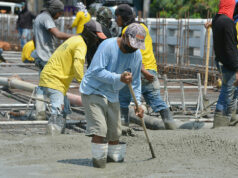Lack of cardava banana seedlings seen stifling export potential
DAVAO CITY — Limited commercial production of cardava, the banana variety used for cooking and making chips, is keeping the Philippines from taking advantage of the variety’s export potential, according to the Philippine Exporters Confederation, Inc. (PHILEXPORT) in Davao Region.
“Our banana chips processors cannot meet the market demand because they don’t have enough supply of this cardava variety,” PHILEXPORT-Davao Executive Director Marizon S. Loreto told the media last week.
She noted that there is also a significant domestic demand for the banana variety, known locally as saba, which is used for popular street food snacks like maruya (banana fritters) and banana-cue (sugar-coated fried banana served on skewers).
Ms. Loreto said there is a need to develop seedling producers to encourage farmers to go into larger-scale commercial production.
“If you are a potential investor in the cardava variety and you are not in a position to find a good source of planting materials… how can you go into commercial production? That is one of the things that is really bugging the industry now,” she said.
“A week ago, I had a meeting with a Chinese buyer who is very interested to purchase or procure banana chips from us, but local processors are not so interested because according to them they already have their market and in fact, they cannot even supply much of their own market because of lack of raw materials,” she said.
Ms. Loreto noted that the region currently has only about 20 banana chips processors, down from about 40 previously. She said some of those that closed shop blamed the inability to maximize production capacity.
The cardava sector and its growth potential will be among the main topics for discussion in the Saging, ATBP Banana Forum and Business Matching Event, organized by PHILEXPORT-Davao, on Oct. 24–25 in Davao City.
“For the last 40 years, according to the banana stakeholders particularly the cardava, saba, lacatan, nobody has really paid attention to this particular sector. Maybe that is the reason why the kind of production that they have over the years is just sort of a backyard thing,” Ms. Loreto said. — Maya M. Padillo



